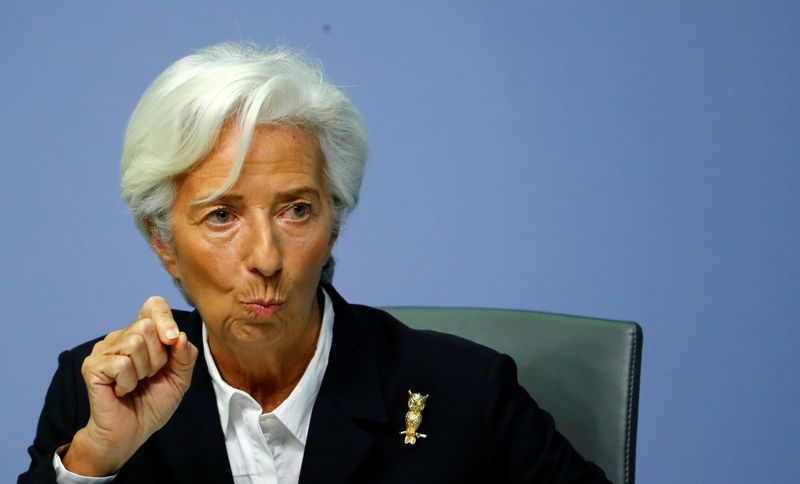By Balazs Koranyi and Reinhard Becker
FRANKFURT/BERLIN (Reuters) - China's coronavirus outbreak is adding to global economic uncertainty but its impact may be short term and temporary, limiting the need for policy action, top European Central Bank executives said on Wednesday.
The coronavirus has killed nearly 500 people and disrupted activity in and around China, raising concerns that its impact on the world's second-largest economy will reverberate across the globe.
"While the threat of a trade war between the United States and China appears to have receded, the coronavirus adds a new layer of uncertainty," ECB President Christine Lagarde said in Paris.
But Philip Lane, the ECB's chief economist, argued that epidemics tend to have a short-term impact on growth and economies then rebound.
"We could see quite a significant impact but importantly for monetary policy - where we have a medium-term orientation - we would honestly be less concerned about temporary shocks than if this turned out to be a long-term distortion to the world economy," Lane said in Berlin.
"The history of (past epidemics) has been that there could be a significant short-term effect of events like these, but no long-lasting effect," Lane said, arguing that the 2003 SARS outbreak and other pandemics are the natural benchmark for analysis.
The ECB has long warned that global risks weigh on the euro zone's economic outlook but has recently sounded more optimistic, arguing that risks appear to be abating, driving investors to price out expectations for more central bank easing.
Warnings about the coronavirus may signal increased caution and could point to continued anemic growth in the 19-member currency bloc.
Lagarde did not hint at any fresh policy moves to counter the new risks. She said that the ECB's forward guidance on interest rates and asset purchases acts as an effective automatic stabilizer.
The ECB guides markets for steady or lower rates until there is a robust rise in inflation, a formulation that automatically delays any rate increase if inflation pressure abate.
The ECB targets inflation at just below 2% but has undershot this figure since 2013, despite unprecedented stimulus.

Euro zone gross domestic product grew by 0.1% in the third quarter, a figure that fell short of expectations. Lagarde downplayed the miss, saying it was "broadly" in line with the ECB's projections.